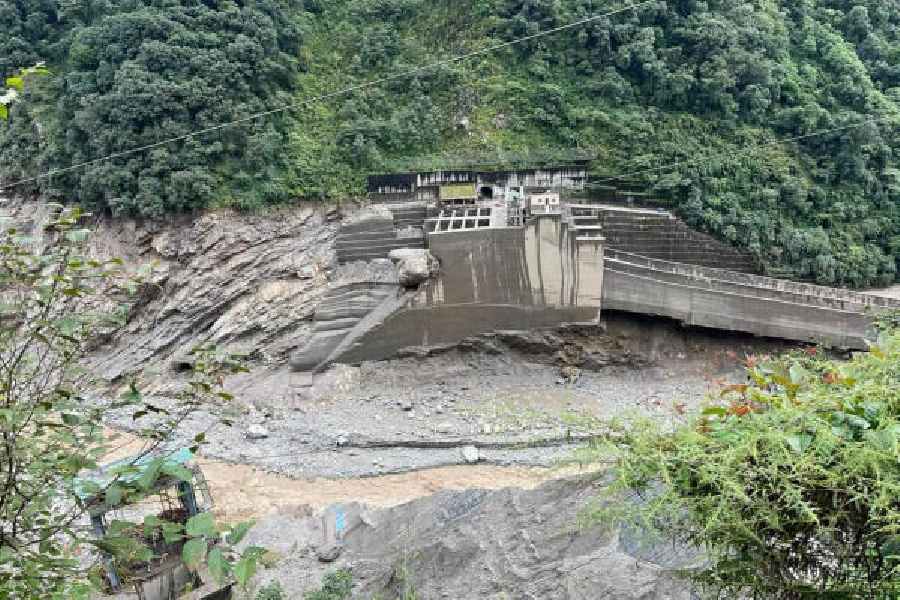The Sikkim government, with a majority stake in the Sikkim Urja Teesta-III hydel project with an investment of about Rs 2,700 crore, started making profits only last financial year.
It was washed away in the October 4 flash flood.
Sikkim chief minister P.S. Tamang (Golay) said that the project was running at a loss until recently.
“In 2019-20, our earning was Rs 203 crore from the project while we had to pay Rs 378 to financial institutions. Similarly, in 2020-21, the earning was Rs 173 but again we had a payment of Rs 329 crore to make. In 2021-22, the figures were Rs 305 crore (as earnings) but we had to pay Rs 335 crores,” said Golay.
It was only during the financial year 2022-23 that the Sikkim government made a profit of Rs 32 crore.
“In 2022-23, our earnings were Rs 440 crore while we had to pay Rs 408 crore,” said Golay.
As of March 31, the state government had an outstanding loan amount of Rs 2,898.97 crore and was a guarantor for Teesta Urja’s loan amount of Rs 6,800 crore. It has borrowed funds from financial institutions to pick up a 60.08 per cent stake in the project.
The 1,200 MW project, the largest in Sikkim, estimated to cost Rs 5,700 crore, was completed in 2017 at an estimated cost of Rs 13,965 crore.
The Sikkim chief minister said that with the dam being washed out, the government did not even have the option to sell 12 per cent of the electricity.
“It will take at least three to four years to rebuild the dam,” said Golay, adding it was a big challenge for the state government to clear financial liabilities of the project. Many in Sikkim are against rebuilding the dam.
On Tuesday, the Sikkim cabinet also cleared a rehabilitation package for people affected by the flash flood.
According to the state government, a total of 1,428 houses are fully damaged and 579 partially damaged in the floods that affected around 88,000 people.
The state government has decided to construct 2,100 houses for those who lost their homes and also come up with a Janta Housing Colony for those staying in rental homes.
“People can stay in the housing colony for three years free of cost after which they will have to pay a nominal rent,” said Golay.
The state government has also decided to provide a one-time grant of Rs 10,000 for students from the affected families to buy school uniforms and other related items. Textbooks would be distributed to them for free.
Every affected family would also be given a set of kitchen utensils and other household items.
The state government has also decided to facilitate a loan up to Rs 10 lakhs to people to start businesses. “The government will pay the loan interest for a period of 24 months,” said Golay.











